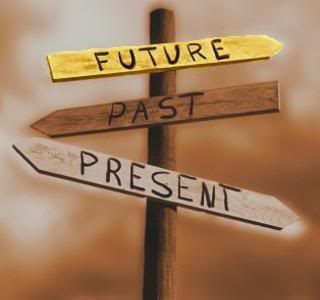- Dettagli
- Categoria: Women views on news
- Pubblicato: 20 Novembre 2013
 Feminism and equality activism. Why feminism must address all forms of discrimination.
Feminism and equality activism. Why feminism must address all forms of discrimination.
by TinaPJ
“My feminism is nothing if it is not intersectional” said someone very famous and wise (probably, a brief internet search has revealed nothing so if no-one can be found to which this statement may be attributed, I’m more than happy to be cited as the original source).
Most people would understand what an intersection is – a crossroads, a place where two or more paths cross. In the case of politics it is the point at which two or more policies or ideals meet. In the case of social policy, it is the necessity of understanding the effects and affects of those points crossing and addressing the situation accordingly.
With regard to political theory, “intersectional” is a buzzword which at its most fundamental means that any form of social or political theory must be inclusive of all people, pertaining particularly to equality activism. We all have different experiences and understandings of our roles, privileges and discriminations within our particular social groups (the micro level for the sociologists amongst you) and wider social placing in our country/nation (the macro level). However, to be an activist in equality, for example, solely on the basis of one identity group such as ‘female’ ignores the individual experiences of oppression through other identity groups who are discriminated against. By other identity groups I mean defined by race and/or culture, whether one is transgender/sexual, has a disability, is of a lower-end economic or social class, is not heterosexual or identifies outside the privileged identity groups in some other way.
These other identity groups which experience discrimination intersect. The life experiences of a working class black woman from the poorer boroughs of south east London is very different to a middle class white woman from a richer suburban area. Those who live in the north of England have different experiences to those in the south of England. There are broad commonalities within identity groupings, but the variations are made up by the differences.
That is the fundamental truth of intersectionality. We can talk in broad generalisations about the oppressions experienced by particular groups, but to ignore or downplay one over the other prevents any true equality being achieved. It would be an error to assume that intersectional equality means getting to a point where everyone is the same – people are different, and those differences are basic and will not be bred or policy’ed into non-existence. We have different abilities, interests and experiences, but discrimination on arbitrary factors limits our access to developing and reaching our potential.
My feminism means I fight to ensure that there will be equality of opportunity for all. That means no discrimination on the basis of gender, and in order for that to be full equality it necessitates intersectional equality. Women are represented in all other arbitrary discriminated-against groups. There are women who are disabled, who are gay, who are transgender/sexual, non-white and so on. Without addressing those forms of discrimination, there can be no equality of opportunity.
Further, there are those who do not fit the gender/sex binary and therefore identify as gender-queer or non-gendered. I have privileges – I am cisgender, white, live in a developed country, am not impoverished (although by no means am I wealthy or even middle-class), am educated to degree level, literate, am identified as heterosexual, married, the list goes on. However, I am a woman and am disabled, so experience discrimination too. My identity is intersectional.
Everyone’s identity is intersectional. Everyone who is not a rich, white, able-bodied, heterosexual, middle- or upper-class, economically stable, educated cisgender/sexual male will experience some form of discrimination. The word “intersectional” may seem a throwaway, confusing buzzword, but it is so much more than that. It is fundamental to all forms of equality activism.
So I repeat, “my feminism is nothing if not intersectional”. Meet me at the intersection. We have some fighting to do.
TinaPJ is a writer and blogger. This post first appeared on Pilot TV News.
Leggi tutto... http://feedproxy.google.com/~r/WomensViewsOnNews/~3/Tl4SYjKqcm0/








